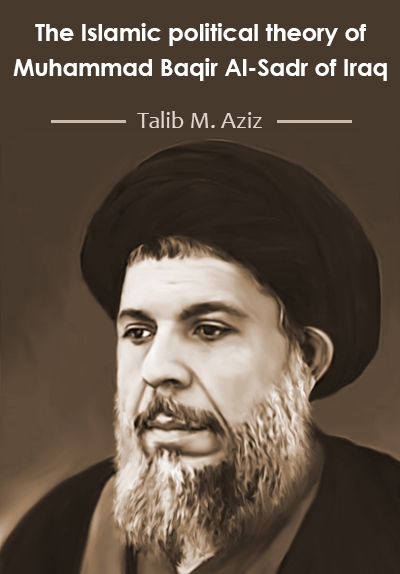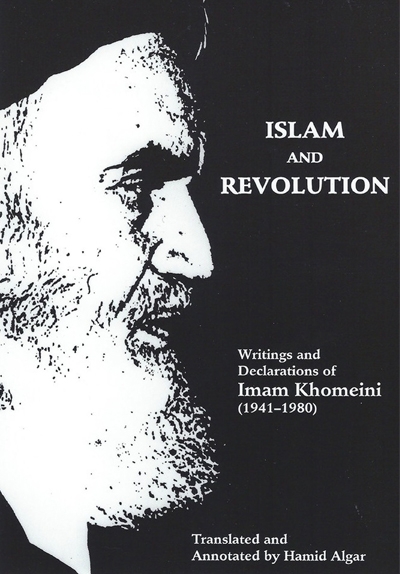



June 4, 2003, was the 14th anniversary of the death of Imam Khomeini rahmat-Allah alaihi, the founder of the Islamic State of Iran. To mark the occasion, we here reprint an article written by the late DR KALIM SIDDIQUI on the first anniversary of the Imam’s death. Below we also publish an extract of a speech given by the current Leader of the Islamic Republic, Imam Sayyid Ali Khamenei, in Tehran on June 4 this year.
In 1989, shortly after the death of Imam Khomeini, and ten years after the Islamic Revolution in Iran, Dr Kalim Siddiqui, Director of the Muslim Institute, London, wrote a series of articles for Crescent International reflecting on the situation of the global Islamic movement at the time, and in particular on the progress and experience of the Islamic Republic of Iran.
In order to understand fully the nature of the Revolution, and in particular if lessons are to be learnt by Islamic movements seeking to achieve similar results, it is the essence of Imam Khomeini’s work and vision that must be grasped.
Iran held a major International Congress on “The Elucidation of the Islamic Revolution” in Tehran from October 2-4, to mark the 100th anniversary of the birth of Imam Khomeini.
Asserting his authority as supreme leader but exercising it with compassion, the Rahbar of the Islamic Revolution, Ayatullah Seyyed Ali Khamenei, brought the rising temperature of political debate in Iran under control during his khutbah on Friday, October 1.
Imam Khomeini (r.a.) was born on Jumadi Al-Akhir 20, 1320AH. Events to mark the centenary of his birth are taking place around the world. Here Crescent International presents an abridged extract from Dr Kalim Siddiqui’s paper Error, deviation, correction and convergence in Muslim political thought (1989), in which he presents his understanding of the Imam’s political contribution...
Professor Hamid Algar begins the main essay of this commemorative collection by highlighting the remarkable fact that ten years after Imam Khomeini’s death, and twenty years after the triumph of the Islamic Revolution in Iran, no serious, comprehensive biography of him has yet been written, in Persian, English or any other language.
Imam Khomeini, the tenth anniversary of whose death on June 4, 1989, was marked by millions of Muslims all over the world this month, was undoubtedly the most important figure in recent Muslim history, the man whose thought and leadership effectively gave birth to what we now know as the global Islamic movement.
In an age when political leaders are packaged and promoted like detergents, the personality of Imam Khomeini stands out by miles. He is undoubtedly one of the greatest figures of contemporary history...
Days before Iran’s foreign minister Kamal Kharazi met his British counterpart Robin Cook in New York on September 24 agreeing to restore full diplomatic relations, the British media had launched a campaign linking this to the Salman Rushdie saga.
Imam Khomeini passed away on June 3, 1989 after successfully leading the Islamic Revolution in Iran. Khalil Osman looks at his personality and leadership qualities.
In my view we have yet to explore and discover the great spiritual and intellectual dimensions that lie in the political thought and Ijtihad of the late Imam Khomeini, may Allah’s mercy be upon him. I would go so far as to suggest that perhaps a whole new research institute should be established dedicated to research and writing on the contribution of Imam Khomeini.
Well known for his unreserved support for the Islamic Revolution of Iran and its chief exponent to the outside world, Dr. Kalim Siddiqui, the late founder-leader of The Muslim Parliament in Britain, believed that the Muslim world needed a series of revolutions.
On 8 April 1980, Muhammad Baqir al-Sadr was executed. His execution aroused no criticism from the West against the Iraqi regime, however, because Sadr had openly supported the Ayatollah Khomeini's regime in Iran and because the West was distracted by the turbulence in Iran that followed the revolution. Governments both in the West and in the region were concerned that the Iranian revolution would be “exported,” and they set about eliminating that threat. When Ayatollah Khomeini called upon Muslims in Iraq to follow the example of the Iranian people and rise up against the corrupt secular Baʿthist socialist regime, they interpreted it as the first step in the spread of Islamic radicalism that would eventually lead to the destabilization of the whole region.
The major theme of the dissertation is to expound on the political thought of the religious activist from Iraq, the late Muhammad Baqir al-Sadr. The study is divided into three parts. The first is designed to introduce Sadr to the readers. The emphasis was given to Sadr's political activism from 1958 when he participated in the formation of the first Shia political party, Islamic Da'wa, to his violent death by the Ba'thist regime in Baghdad in 1980. The second part aims at setting the parameters of the definition of the political theory in order to help underpin Sadr's political thought and evaluate its merits. Finally, the main part of the dissertation is the third chapter in which Sadr's political thought is systematically and thoroughly analyzed. Sadr's major political concepts about man, society and the state are introduced, his interpretation of the historical process is scrutinized, and his political program in ending social contradictions is examined.
1The present article was published by Shahid Shaqaqi in Egypt. It was translated into English and first published by the Islamic Propagation Organization of the Islamic Republic of Iran, in Canada, with the title, Sunni vs. Shi'ah: A Pitiful Outcry, and under the pen name of the author, Ezzoddin Ibrahim.
1The present anthology is designed to serve as a detailed and reliable introduction to the ideas and pronouncements of Imam Khomeini for those who have no access to the original Persian texts. Imam Khomeini has been a prolific writer and frequent speaker, and this volume represents only a fraction of his total output. We have excluded writings that deal with technical aspects of Islamic jurisprudence and philosophy, although passing reference to such matters inevitably does occur in some of the texts we have translated. We begin with the best-known work of Imam Khomeini, his lectures on Islamic Government, and then proceed to offer a selection of his speeches and declarations, which, chronologically arranged, form an outline documentary history of the Islamic Revolution.
1IMAM RUHULLAH AL-MUSAVI AL-KHOMEINI was born on September 24, 1902 into a family of strong religious traditions in Khumayn, a small town some hundred kilometers to the southwest of Tehran.1 Both his grandfather and father were religious scholars. The former, Sayyid Ahmad, was known as al-Hindi because of a period he had spent in India, where a distant branch of the family is said still to exist.
1“Islamic Government” is an exact translation of the original Persian title, Hukumat-i Islami. However, the reader should bear in mind that the book does not purport to offer either a complete scheme of Islamic political philosophy or a detailed plan for the establishment and functioning of an Islamic state. Its purpose is narrower and more specific, and geared to the audience to whom the lectures were delivered: students of the religious sciences, who might be expected later to assume positions of influence in Muslim society.
1A BODY OF LAWS ALONE is not sufficient for a society to be reformed. In order for law to ensure the reform and happiness of man, there must be an executive power and an executor. For this reason, God Almighty, in addition to revealing a body of law (i.e., the ordinances of the shari’a), has laid down a particular form of government together with executive and administrative institutions.
1

